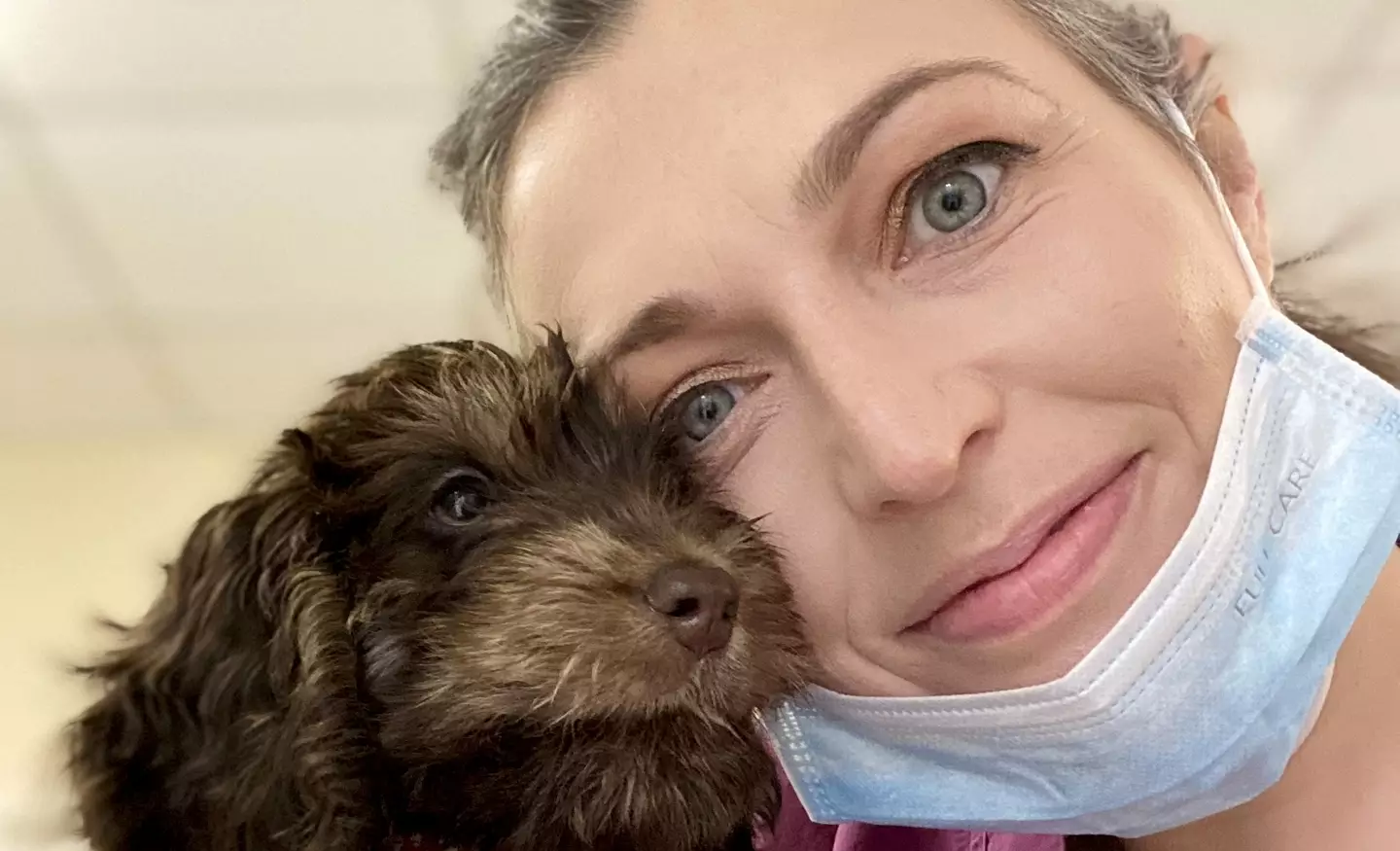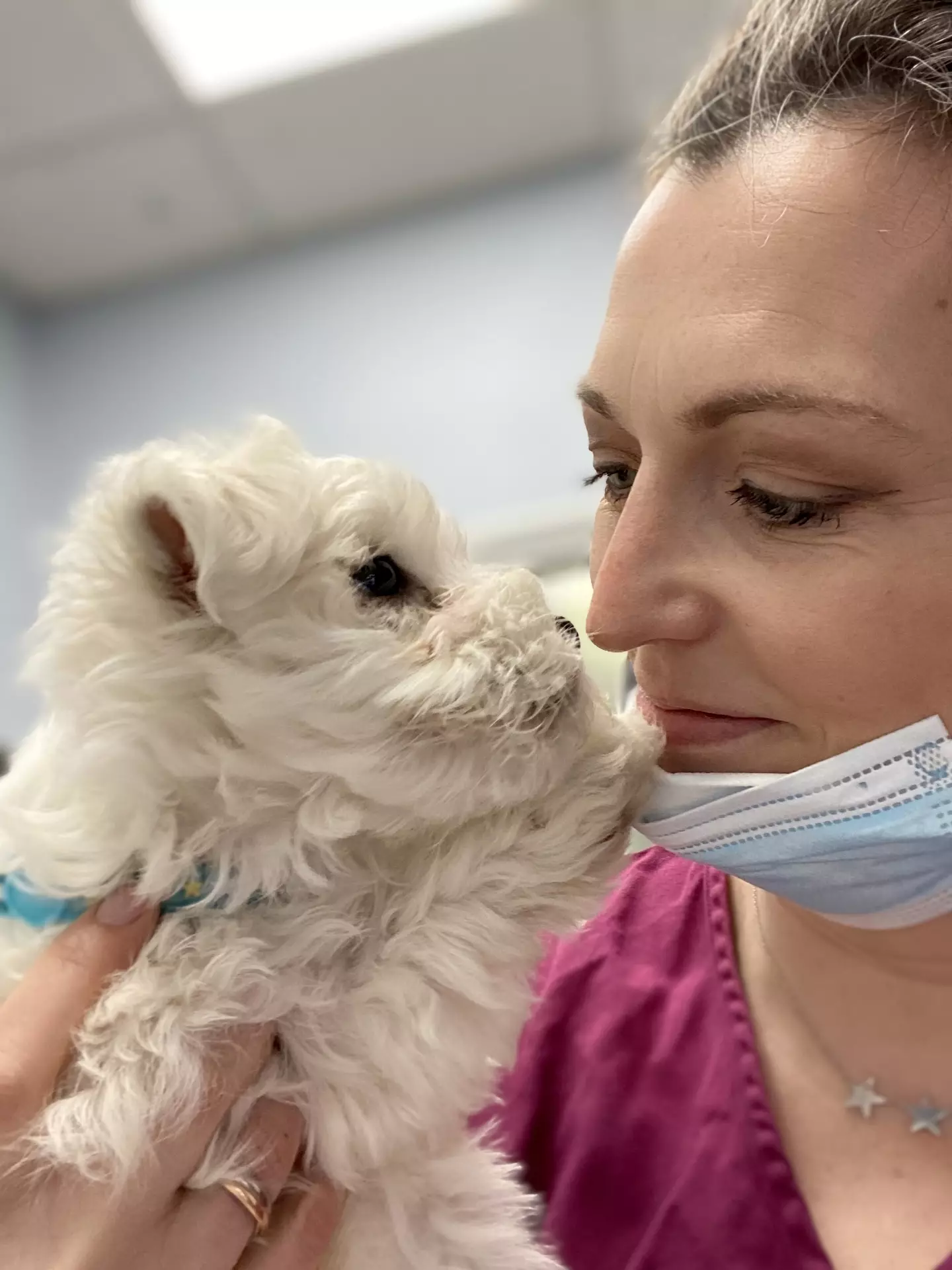
Most people – dog owners and others – have likely thrown a stick to a dog during a game of fetch, however this may actually lead to a 'super serious' issue according to a vet. Watch the video below.
Cat Henstridge, a vet from Sheffield, has divided opinion after sharing a video in an effort to stop people from throwing sticks at dogs when playing.
In the 42-year-old’s video, the veterinary surgeon shared all her personal ‘do nots’ as a dog owner.
Advert
“I will never throw a stick for her,” she began. “The injuries that are caused by throwing sticks are horrendous."
She went on to explain that sticks can go 'Down their mouths, into their necks,' before adding: "They can be super, super serious.”
Cat, who also owns a dog and 11 guinea pigs, had other tips which included never feeding her pet pooch Mandy raw food and the dangers of using ball throwers.

Advert
“Although she loves playing with tennis balls,” Cat said when introducing her second tip, “I will never use a ball thrower to throw one for her.
“They do incredible damage to dogs’ joints and the balls will always be dog-friendly ones.”
Introducing her third tip, she said: "I will never feed Mandy a raw dog food diet.
"You can feed your dog whatever you wish, but for me, the risk of nutritional imbalances and the risk of bacterial infections to both her and my family are far too great."
Advert
The vet also said that she would never let her dog become 'fat' and that she always keeps her beloved pet up to date with her vaccines and worm treatments.
Cat's tips - which she shared on TikTok - sparked a heated discussion on social media, with many viewers of the video disagreeing with the animal expert’s recommendation.

One person said: "Raw food is better than any kibble for them. My dogs kiss me all the time and I never get sick."
Advert
A second commented: "Raw is what is natural for them... kibble is not what they would naturally eat."
Another wrote: "I'm confused how ball launchers can cause issues? I just have a bad throw and need help."
On the other hand, many agreed with her ideas - saying they had made the same decisions for their own animals.
One said: "My dog choked on a stick once, she was bleeding from her throat. Thank goodness she was OK but it was a lesson learnt."
Advert
Another said: "Our last dog needed an expensive operation after running after a ball thrown with a ball thrower."
A third added: "NO STICKS!! My old dog cut the inside of his throat open catching one."

Cat responded to the backlash to her viral video, which has now amassed more than 330,000 views.
"Not everyone agreed with what I said,” she responded.
"With throwing sticks, not every time you throw a stick something will go wrong. But there can be horrific injuries.
"A lot of people disagreed on the raw food, but the dogs are more likely to shed salmonella and antibiotic-resistant e-coli if they eat raw.
"So it's a public health issue as well as a personal one.
"With the ball flingers, the dogs really love it - but that kind of exercise puts a lot of strain through the dog's joints.
"Because the activity causes them to release adrenaline, playing ball can tip into obsession for the dogs.
"They want to get that high all the time, and won't play any other games. It's not good for their mental health."
She added that just because the information she provided is new to some people, it doesn’t mean that it is wrong.
She concluded: “I know what I’m talking about!”
